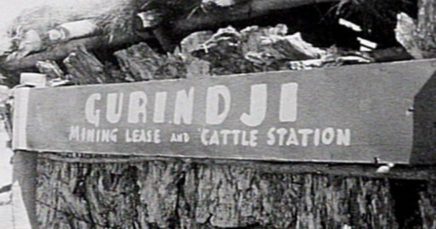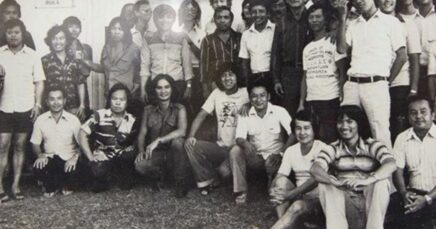Organiser Zac Gallagher from the Collieries’ Staff and Officials Association tells us how he has intergrated the Secure Jobs campaign into organising the ground with Queensland mine workers.
Campaign slogans like ‘secure jobs’ tend to draw their meaning and power from the recipients and not from the people saying them. As an Organiser, what I can say is that ‘secure jobs’ as a campaign has created flexibility and is resonating with workers.
Since 1944, the Collieries’ Staff & Officials Association (CSOA), has had a proud history of standing with workers and members in the coal industry regarding Secure Jobs . Members of the CSOA were responsible for campaigning to bring severance pay in 1973 and redundancy pay in 1983 to the coal sector.
Whilst it may seem counterintuitive to suggest that redundancy and severance conditions relate to Secure Jobs, it is important to look at the central theme of what work is. Our members take immense pride in their work, as do all union members; often the hardest job for organisers and delegates can be to get workers to think about themselves and not their work!
Which is why we need to define “jobs”. Secure work does not mean having the same job forever. A job with a specific mine or company can never be secure. Unfortunately, workers bear the brunt of global economic conditions, commodity price fluctuations, corporate ideology, and government decisions. Because of this union members understand that a specific job may never be set in stone. Secure Jobs re the ability to use your skills and knowledge to achieve outcomes and the personal reward that comes with it. Often, for our members, personal rewards aren’t financial, rather it’s the connection to their regional community, their fellow workers and to provide opportunities for their children.
To this end, the wins on redundancy and severance payments have provided financial flexibility to search for employment in the sector. But, simply looking at these payments as a pay-out does not explain why it was important. It was important because coal workers can look for new work within their specialty and are not forced to give up their hard-earned skills.
Now I’m sure the question will be raised, “if this is the case, why did Queensland coal seats swing right to the coalition?”
The events leading up to the 2019 Federal Election and its outcome have been discussed ad nauseam. From speaking to workers, union members and people who live in these communities, one thing that influenced their vote was who they thought respected their labour, their knowledge, and their skills. Having aligned values about “jobs” are important in these communities.
It is obvious that if the broader labour movement wants to regain these electorates, we will have to promote reform and progress in a way that acknowledges the labour and demanding work of these communities. Through this campaign we are doing just this, and this is very welcomed.
This is also exactly where we have been focussing our Secure Jobs campaign initiatives. The coal sector includes some of the most combative employers in country and dangerous working conditions, union leaders have been discussing Secure Jobs through the frame of positive reform to address these issues.
Firstly, one of the key issues resonating with members is the need to reform our employment landscape, but for more than a decade militant management have run rampant, targeting site union leaders, attacking conditions, and undermining the right of workers to organise and fight for improved conditions.
Our members see daily the power that their employers have over them, from their meetings and conversations. Our members also want to be able to have a say in decision-making, not just passive participation. Many companies promote worker participation, this often includes a “consultation” committee, where Human Resource (HR) staff allow opinions to be raised but no actual decision-making authority exists. Decision-making is key to safety and our members work tirelessly to make sure all workers go to work and get home in the exact same state.
They view their ability to make a safety decision as critical to achieving these goals, it is also one of the reasons they organise their peers and look to aim at collective bargaining, as they see it is essential that they have strong conditions that allow input. However, in our current IR landscape, organising a first ever agreement is akin to pushing a rock up a hill while someone is lighting you up with a firehose. The landscape is completely slanted to the employer, who always seek to bog down the process in disputes and challenges.
To get these points to members, we haven’t relied on glossy materials, but rather ongoing and deep conversations with our site leaders. Decentralising the campaign has been a decisive factor in getting interest, we have also included aspects of the secure jobs campaign in our moves at multiple sites for first ever agreements.
Everyone promotes decentralised decision making, however there has been some challenges. Firstly, as union officials the reasons for reform are obvious to us, but for workers, their priorities are often focused on going to work, getting home safe and spending time with their families. It has been critical to frame the campaign in these areas, and link to the impacts of their day to day lives.
Having site committee meetings, discussing the initiatives, and developing conversation frameworks through issues at their mine has been essential. Without bringing it to the site level, the campaign would be white noise in the background of their day-to-day life.
Which is why all our Secure Jobs initiatives have been co-opted into on the ground union issues, such an enterprise bargaining negotiation, consultation issues and mine sales. Politically framing these issues can be challenging, however developing the mental frameworks to view issues as structural and not just the combative HR department is essential.
Shifting focus from what they interact with, management, HR etc, to viewing issues as a structural problem takes time. It also centred around using the Secure Jobs campaign to grab attention, then converting that attention into education, development, and critical thinking. The union has been developing materials such as guides to collective bargaining, highlighting structural issues, sending targeted communications about specific issues with the example of how this is facilitated by poor legislation and linking everything back to reform and the campaign.
Through this we have seen more attention from the membership on structural issues, a greater understanding of the Industrial Relations landscape and an appreciation for how important Secure Jobs really are.



